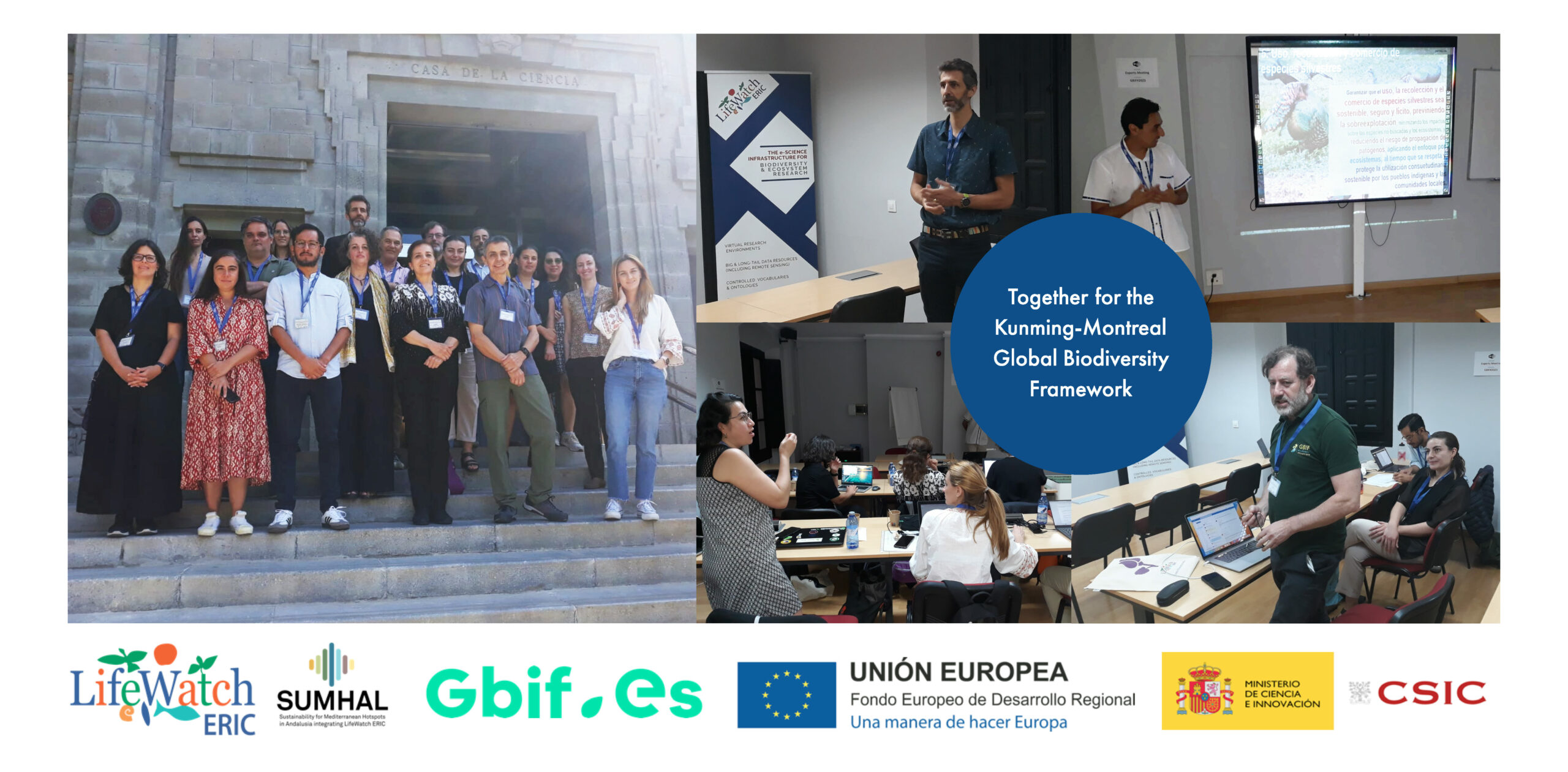
LifeWatch ERIC and the Global Biodiversity Information Facility (GBIF) met from 30 May to 2 June, 2023, to support the Kunming-Montreal Global Biodiversity Framework adopted by the Parties to the Convention on Biological Diversity. It is a package of decisions approved at the UN Biodiversity Conference in Montreal, in December 2022. The overall goal was to establish recommendations and actions that can then be replicated and extended to the global GBIF community.
The Kunming-Montreal Global Biodiversity Framework foresees a greater emphasis on transparency and monitoring of initiatives than previous frameworks, and therefore will require greater involvement of science and data-based evidence. In combining forces, GBIF and LifeWatch ERIC seek to understand what the requirements of the Convention on Biological Diversity (CBD) are and how together they can provide the necessary information for progress indicators, strategies and action plans.
The meeting, held at the Casa de la Ciencia in Seville, was coordinated by Francisco Pando, researcher at the Spanish National Research Council (CSIC) and coordinator of GBIF Spain. Representatives from institutions in Colombia, Mexico, Uruguay, Guatemala, Argentina and Spain also joined the event. The GBIF Secretariat was represented by Tim Hirsch, Deputy Director, while Lucas de Moncuit, member of the LifeWatch ERIC Executive Board, participated on the first day.
On the last day of the conference, Christos Arvanitidis, LIfeWatch ERIC CEO, congratulated the participants for three days of intense work while expressing LifeWatch ERIC ongoing commitment to this initiative. Throughout the various sessions, they addressed each of the 23 Goals of the Global Biodiversity Framework and identified the elements needed to concretise the indicators in each country’s territory. They explored formats by which GBIF can provide information for the advancement of indicators, strategies and action plans under the Convention on Biodiversity (CBD), so that GBIF national nodes in any area of the world contribute more effectively to CBD goals and country objectives.
Tim Hirsch, GBIF Deputy Director, Patricia Koleff, General Director of Analysis and Priorities of Conabio, the National Commission for the Knowledge and Use of Biodiversity in Mexico, Anabela Plos, Argentina GBIF Node Coordinator and Latin America and the Caribbean nodes representative, Dario Escobar, Director of SiB Colombia and GBIF Colombia Node Manager, José Luis Echeverría, Director of the National Council of Protected Areas of Guatemala, and Ana Laura Mello, from the National Directorate of Biodiversity and Ecosystem Services of the Ministry of the Environment of Uruguay and GBIF Uruguay node coordinator, participated in the conference.
LifeWatch ERIC brought to the table its experience in the SUMHAL Project – Sustainability for Mediterranean Hotspots in Andalusia – on how to sustainably preserve the biodiversity of natural or semi-natural systems. The LifeWatch ERIC Virtual Research Environments offer high-tech tools and services capable of combining field work with the analysis of remote sensing data, and then -through real association between researchers and citizens – disseminate accurate appraisals of the state of conservation and the most frequent threats.
LifeWatch ERIC presented the digital tools and technologies that is designing and developing to put them at the service of the international community of researchers in biodiversity and ecosystems. Ana Mellado and Pablo Guerrero from LifeWatch ERIC ICT-Core, explained in particular how new knowledge can be generated and how we can carry out workflows by automating the analysis of huge amounts of data.
The contribution of Latin American countries is fundamental, not only because of the limited resources available to them in the management and conservation of biodiversity and ecosystems, but also because the teams responsible for their national GBIF networks also participate in CBD meetings and negotiations, and so bring a unique vision of the two worlds to contribute to the objectives and goals of GBIF worldwide.